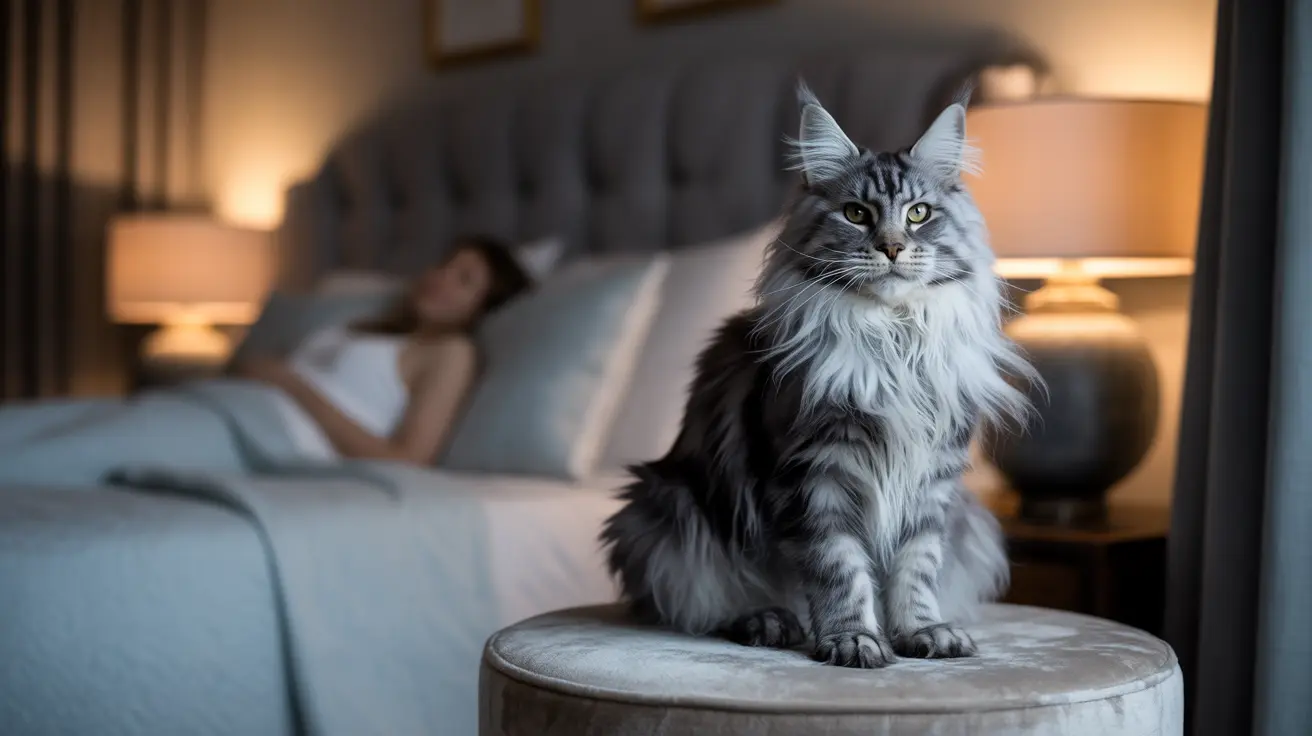The Natural Protective Instincts of Cats
Cats are naturally territorial creatures, and this instinct extends to protecting their human family members. Their evolutionary history as both predator and prey has equipped them with exceptional sensory capabilities that make them excellent nighttime sentinels.
These protective instincts manifest in several ways:
- Heightened awareness of environmental changes
- Strategic positioning near their owners
- Quick responses to unusual sounds or movements
- Defensive posturing when sensing potential threats
How Cats Guard Their Owners During Sleep
While cats may not actively patrol like guard dogs, they demonstrate protective behaviors in more subtle ways. Many cats choose sleeping positions that allow them to monitor their surroundings while staying close to their owners. Their superior night vision and acute hearing enable them to detect disturbances long before humans notice them.
Scientific studies have shown that cats can detect changes in:
- Air pressure and temperature
- Chemical signatures in the environment
- Human body chemistry and emotional states
- Subtle sounds beyond human hearing range
The Bond Between Cats and Their Owners
Research indicates that cats form emotional attachments to their owners similar to those observed in human relationships. This bond significantly influences their protective behaviors, especially during vulnerable nighttime hours. Studies have shown that cats who share stronger bonds with their owners are more likely to exhibit protective behaviors.
Documented Cases of Protective Cats
Numerous documented cases demonstrate cats' protective capabilities:
- Cats warning owners of house fires
- Felines detecting medical emergencies
- Cats confronting intruders
- Alerts to environmental dangers
Understanding Your Cat's Protective Behaviors
Not all protective behaviors are obvious. Your cat might be guarding you through:
- Sleeping at strategic locations in your room
- Responding to unusual sounds with alertness
- Staying close during times of illness or stress
- Making regular "patrols" of your living space
Frequently Asked Questions
How do cats show protective behaviors toward their owners at night?
Cats display protective behaviors through strategic positioning, alertness to unusual sounds or movements, and staying close to their owners. They may react to potential threats with vocalizations, defensive postures, or by attempting to wake their owners.
Can cats actually warn their owners of dangers while they sleep?
Yes, cats can warn their owners of dangers while sleeping. Their acute senses allow them to detect environmental threats, intruders, or emergencies before humans notice them. Many documented cases show cats alerting their owners to fires, medical emergencies, and other dangerous situations.
Why do some cats choose to sleep near or on their owners at night?
Cats sleep near their owners for multiple reasons, including protection, warmth, comfort, and emotional security. This behavior demonstrates trust and a desire to monitor their environment while staying close to their bonded human companion.
How can I encourage my cat to be more alert and protective during nighttime?
Build a strong bond with your cat through consistent care, attention, and positive interactions. Maintain regular routines, provide comfortable sleeping spots near your bed, and respond positively to their alerting behaviors when appropriate.
What instincts cause cats to act as nighttime guardians even though they differ from dogs?
Cats' territorial nature and evolutionary development as both predator and prey species give them natural guarding instincts. Their acute senses and strong bonds with owners drive them to monitor and respond to potential threats, even though their protective style differs from dogs.
Conclusion
While cats may not be conventional guardians like dogs, they do offer a unique form of protection through their natural instincts, acute senses, and emotional bonds with their owners. Understanding and appreciating these protective behaviors can help strengthen the special relationship between cats and their human companions.






